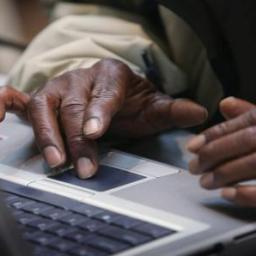When is your data not your own? When it's in the cloud
 I've got Captain Obvious on the line, and he'd like you to know: the data you store in the cloud isn't private. You might be thinking, "I knew that." But it's news to some, like this guy, who got busted for possession of illegal pornographic images (child porn) , after backing up his computer to a Verizon cloud backup service. Bonus: he was the deacon of a Catholic school in Baltimore county: oops.
I've got Captain Obvious on the line, and he'd like you to know: the data you store in the cloud isn't private. You might be thinking, "I knew that." But it's news to some, like this guy, who got busted for possession of illegal pornographic images (child porn) , after backing up his computer to a Verizon cloud backup service. Bonus: he was the deacon of a Catholic school in Baltimore county: oops.Turns out, cloud storage providers routinely sweep stored data, using hashes for known illegal images or media files. If they find one, you're toast.
From Ars Technica:
When Congress passed the PROTECT Our Children Act of 2008 mandating that service providers report suspected child pornography in the content that their customers surf and store, the law gave providers an out: if they couldn't check, they wouldn't know, and they wouldn't have to report it. But while checking is still voluntary, the National Center for Missing and Exploited Children has been pushing providers to use image-matching technology to help stop the spread of child pornography.This isn't breaking news: the articles date back to March. But it's still relevant in the framework of the ongoing discussion of cloud-versus-local and the rights of authorities to revise your computing habits.
An interesting study would be for some journalist to open up different cloud backup accounts and post different things to see what gets flagged and what doesn't.
It still reinforces my idea that I'm going to buy a second NAS and back stuff up between the two NASes instead of backing up my NAS to some cloud provider. It seems interesting and useful from a technical point of view, but given the current legal and political environment, it hardly seems worth it.